For centuries, the dream of slowing or reversing aging was confined to legend and myth—think of the elusive Fountain of Youth. Today, however, this ambition is at the forefront of scientific research. Thanks to rapid advances in genetics, biotechnology, and cellular biology, scientists are uncovering the mechanisms that drive aging at its roots. Breakthroughs in laboratories around the globe fuel hope that aging could one day be treatable, not inevitable. In this article, we’ll explore 15 cutting-edge strategies experts are developing to combat aging and extend healthy human life.
1. Senolytic Drugs

Senolytic drugs are designed to seek out and destroy senescent cells, which are “zombie-like” cells that stop dividing but refuse to die. These cells accumulate as we age, fueling inflammation and tissue breakdown throughout the body. Early research in mice suggests that removing senescent cells can extend healthy lifespan and improve physical function. Biotech companies such as Unity Biotechnology are now leading clinical trials to determine if senolytics can deliver similar benefits in humans. Learn more
2. Telomere Extension
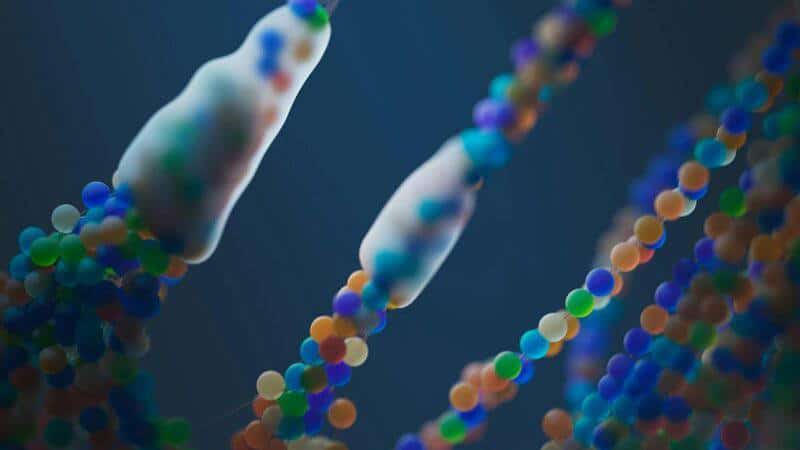
Telomeres act as protective caps at the ends of chromosomes, but they gradually shorten every time a cell divides. This shortening process is strongly linked to aging and cellular dysfunction. Scientists are developing therapies—including gene editing and compounds like TA-65—to extend telomeres and potentially delay the onset of age-related decline. Early studies in animals have reported increased lifespan, though researchers caution that more work is needed to confirm long-term safety for humans. Read more
3. Caloric Restriction

Caloric restriction—eating fewer calories without malnutrition—has been shown to extend lifespan in creatures ranging from yeast to monkeys. This approach appears to slow down metabolic and cellular processes that contribute to aging. While animal research is promising, scientists are still examining how caloric restriction might affect human aging and longevity. Ongoing studies aim to uncover the safest and most effective ways to harness these benefits. See study
4. NAD+ Boosters
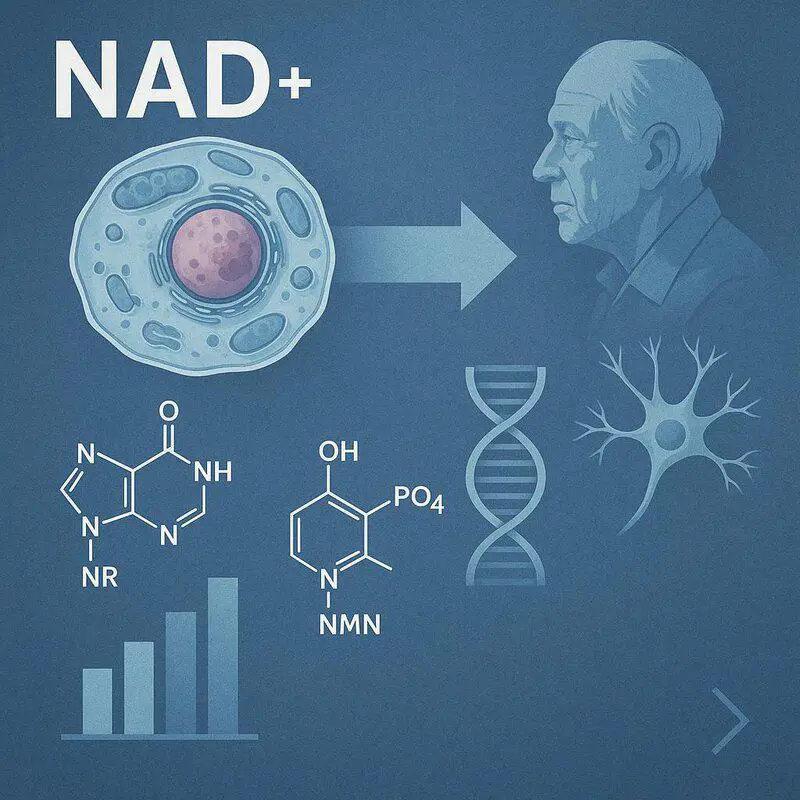
NAD+ is a vital coenzyme involved in cellular energy production and DNA repair, but its levels naturally decline with age. Scientists are investigating supplements such as nicotinamide riboside (NR) and nicotinamide mononucleotide (NMN) to restore NAD+ and combat age-related decline. Preliminary studies suggest these boosters may enhance metabolism and support cognitive health, sparking excitement in the longevity research community. Ongoing human trials are testing their long-term effectiveness and safety. More info
5. Stem Cell Therapies
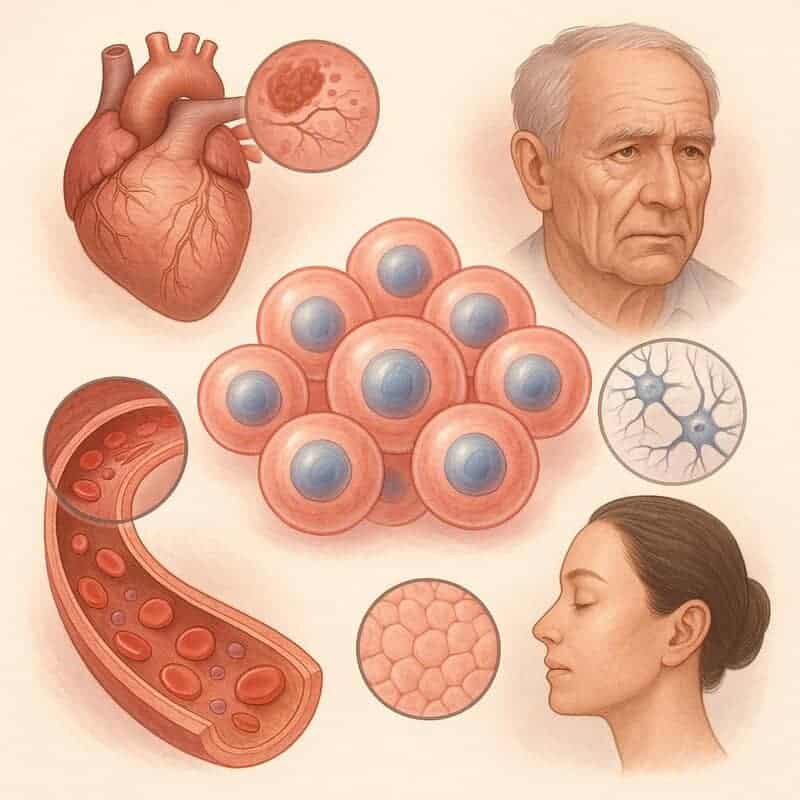
Stem cells are unique for their remarkable ability to regenerate and repair damaged tissues. Scientists are harnessing this potential to develop therapies for age-related diseases, from heart failure to neurodegeneration. Current research also explores using stem cells to replenish blood and rejuvenate aging skin, opening new doors in regenerative medicine. While clinical trials are still underway, early results suggest these approaches could transform how we treat aging and its many complications. Details here
6. Gene Editing
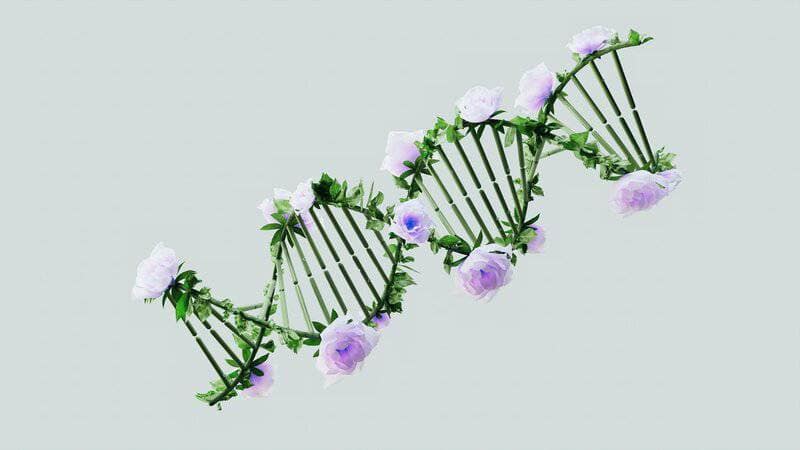
Gene-editing technologies like CRISPR allow researchers to precisely modify DNA, correcting mutations associated with aging and age-related diseases. This powerful tool opens the door to potentially delaying aging at its genetic roots and treating inherited disorders. While the possibilities are exciting, scientists continue to grapple with significant ethical and safety considerations as they refine these techniques. Ongoing research aims to balance innovation with responsibility. Explore CRISPR
7. Young Blood Transfusions

The concept of parabiosis—infusing young blood into older animals—has produced striking rejuvenation effects in laboratory mice. Scientists are now working to isolate the specific proteins and molecules responsible for these benefits, hoping to replicate the effects without transfusion. While some early human trials have begun, this approach remains controversial and is closely monitored for safety and ethics. Read more
8. Rapamycin and mTOR Inhibitors
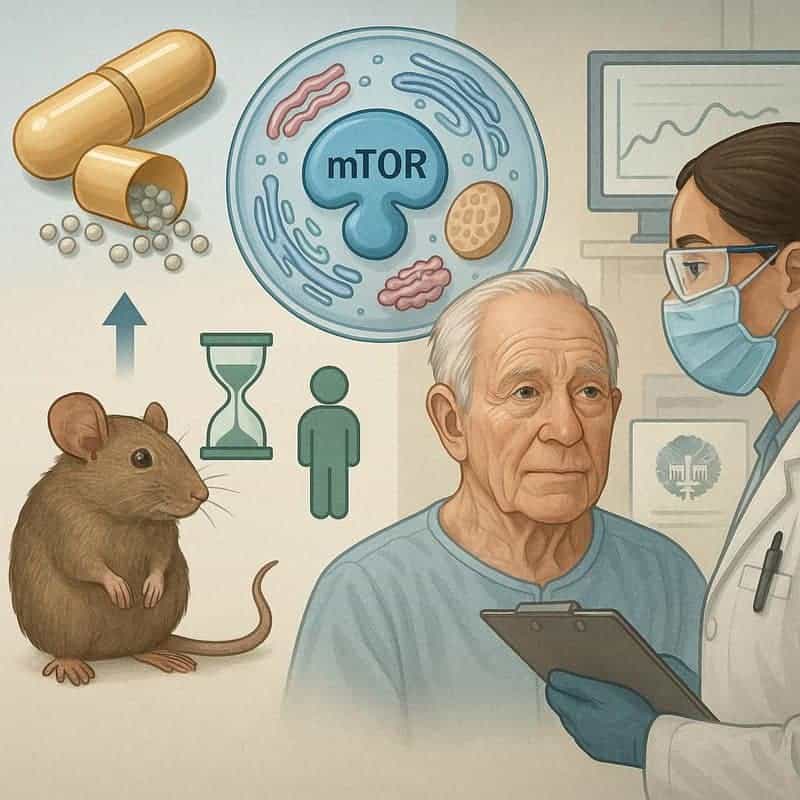
Rapamycin is a drug that targets the mTOR pathway, a crucial regulator of cellular growth and metabolism. In animal studies, inhibiting mTOR with rapamycin has significantly extended lifespan and improved healthspan. Scientists are now investigating whether these effects translate to humans, with clinical trials evaluating both safety and anti-aging benefits. The results could pave the way for a new class of longevity-promoting treatments. See NIH report
9. Epigenetic Reprogramming
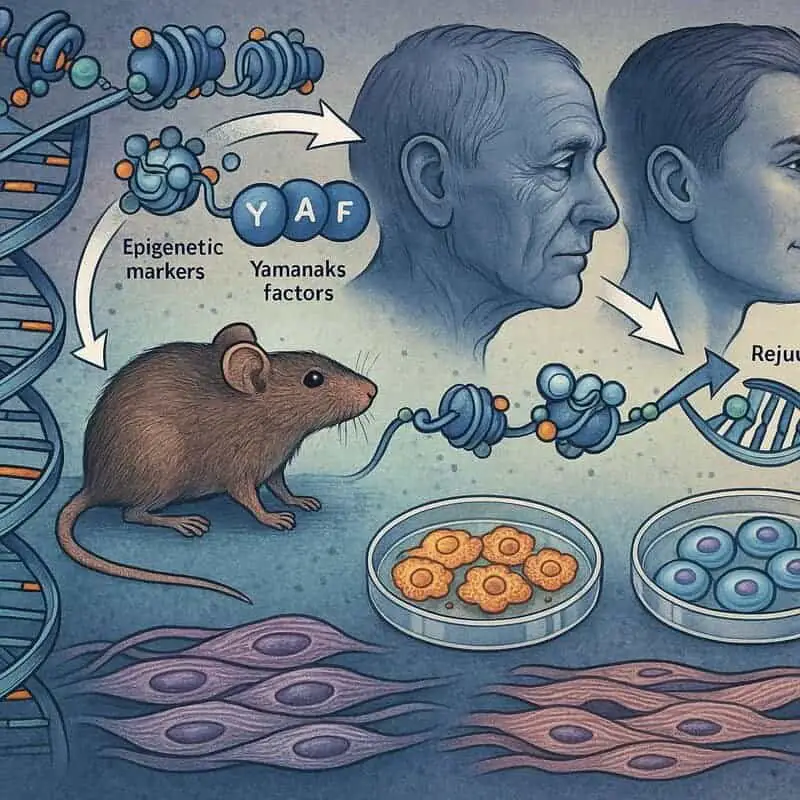
Aging is not just about DNA mutations—it’s also driven by changes in epigenetic markers that control gene activity. Researchers are experimenting with reprogramming factors, like the Yamanaka factors, to reset these markers and rejuvenate cells to a more youthful state—without triggering uncontrolled growth or cancer. Early experiments in mice have shown the potential to reverse certain signs of aging and restore tissue function, offering a tantalizing glimpse at the future of regenerative therapies. More here
10. Microbiome Modulation
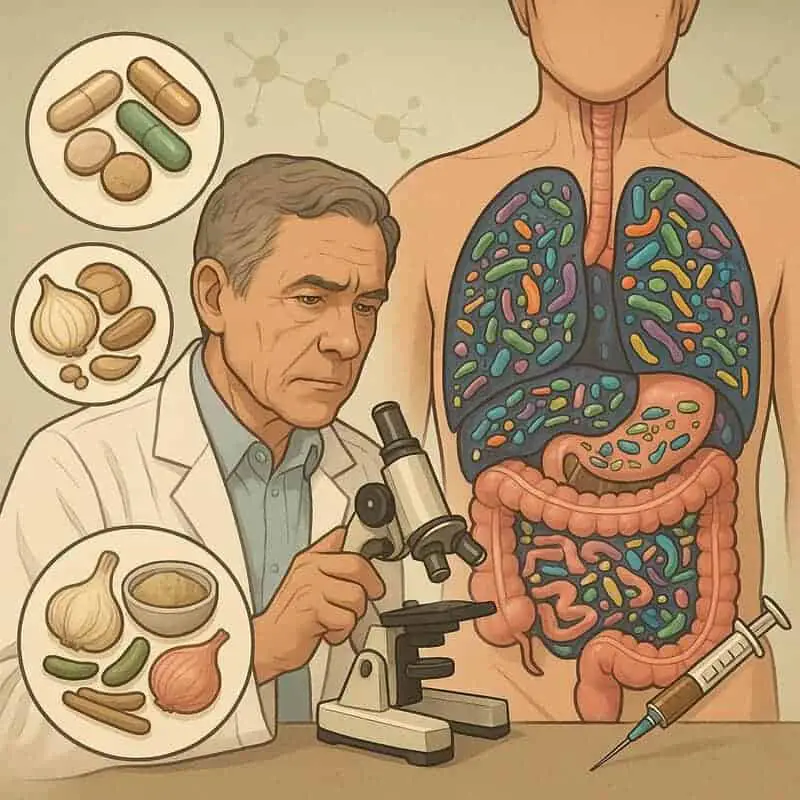
Our gut microbiome plays a pivotal role in regulating inflammation, metabolism, and immune response—all key factors in the aging process. Scientists are exploring ways to promote longevity by maintaining a balanced microbiome through probiotics, prebiotics, and even fecal transplants. These interventions aim to support healthy aging by optimizing gut health, with human trials now underway to assess their long-term benefits. Learn more
11. Artificial Organs and Tissue Engineering
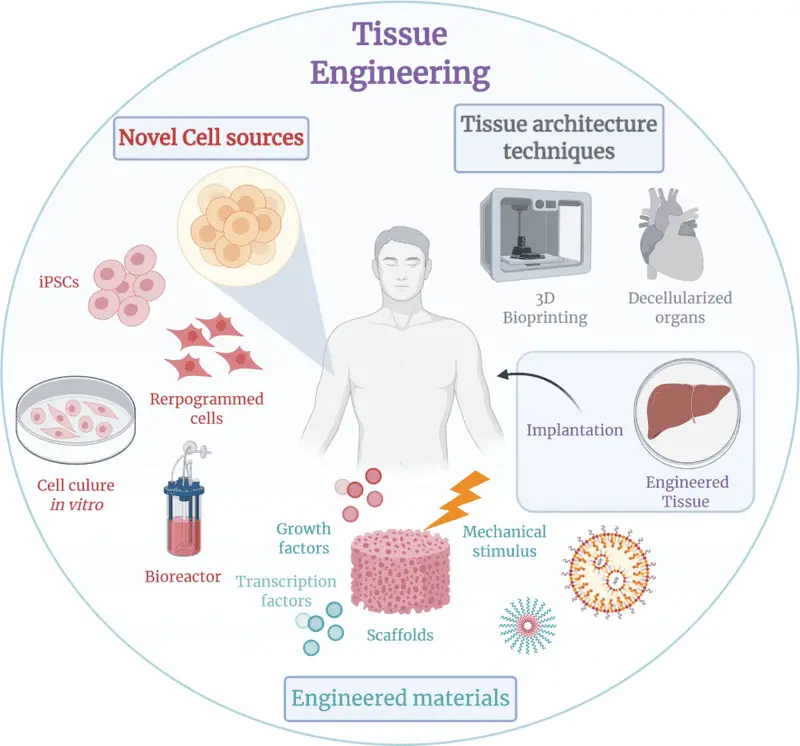
Bioengineers are making remarkable progress in developing artificial organs and engineered tissues to replace or repair those damaged by aging. Using cutting-edge technologies like 3D printing and advanced biomaterials, scientists are now able to create functional tissues suitable for transplantation. These innovations could dramatically extend healthspan by restoring organ function that would otherwise decline with age, offering hope to countless patients awaiting transplants. Read details
12. Targeting Inflammation
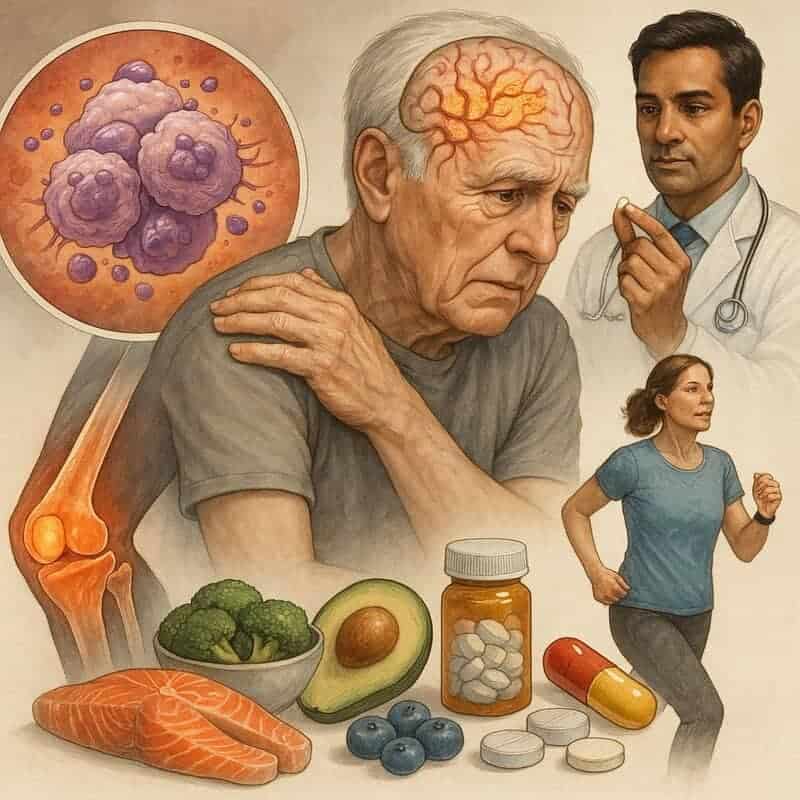
Persistent, low-level inflammation—often called “inflammaging”—is closely linked to many age-related conditions, including Alzheimer’s and arthritis. Scientists are developing both pharmaceutical and lifestyle interventions to reduce inflammation and minimize its damaging effects on the body.
These approaches range from anti-inflammatory drugs to dietary changes and exercise, all aiming to support healthier aging and lower disease risk.
See Mayo Clinic
13. Hormone Replacement Therapies
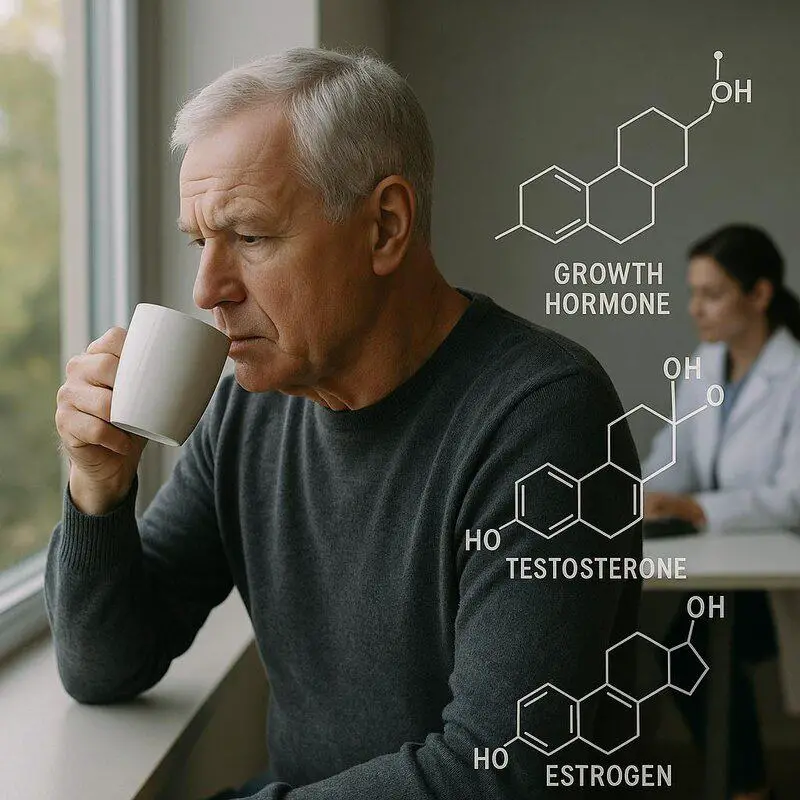
As we age, levels of key hormones like growth hormone, testosterone, and estrogen naturally decline, impacting energy, mood, and disease risk. Researchers are testing hormone replacement therapies to restore these levels and potentially slow aging. However, the long-term safety and effectiveness of such treatments remain debated, with ongoing studies evaluating both their promise and their risks. Read about it
14. Advanced Diagnostics and Biomarker Tracking
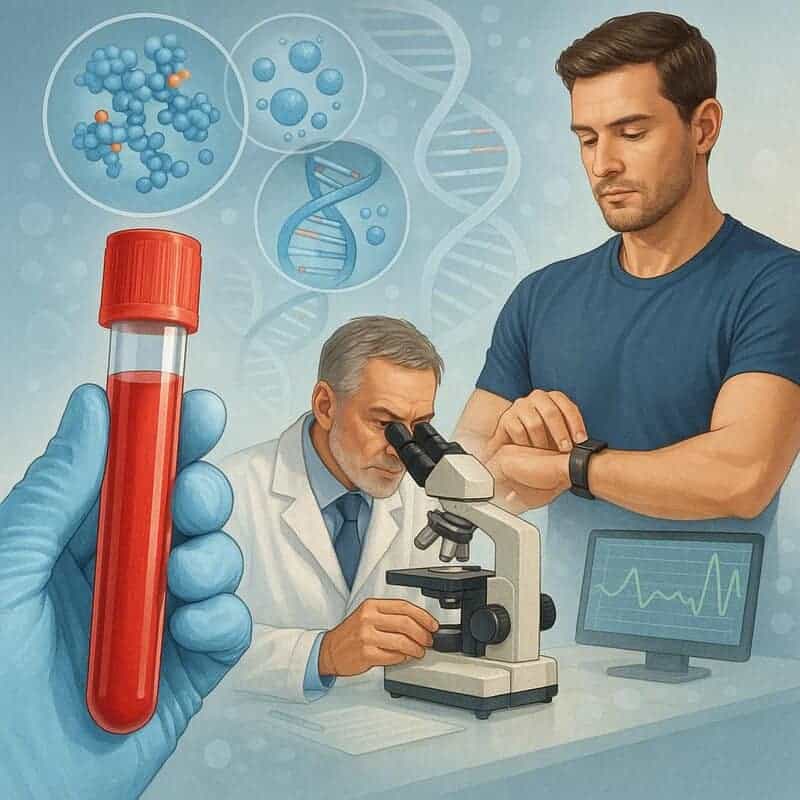
Emerging blood tests and wearable technologies are revolutionizing how we track biological age. By measuring specific molecular biomarkers—such as proteins, metabolites, and DNA changes—scientists can spot signs of aging long before symptoms appear. This early detection empowers people to personalize their anti-aging strategies, tailoring interventions to their unique biology for the best possible outcomes. More info
15. Lifestyle Optimization with AI

Artificial intelligence is transforming how we approach longevity by analyzing individual health data to recommend tailored lifestyle changes. These AI-powered platforms suggest the ideal diet, exercise routines, and sleep habits to help extend healthy lifespan. Several pioneering startups are now offering personalized, data-driven plans, allowing users to make smarter daily choices for optimal aging. See Forbes
Conclusion

The quest to delay or reverse aging has led scientists to explore an extraordinary range of strategies—from gene editing and cellular therapies to advanced diagnostics and AI-driven lifestyle plans. While many of these innovations are still in the experimental stage, the pace of discovery is accelerating rapidly. There is genuine hope that safe, effective methods to extend healthy lifespan will soon emerge, though researchers urge both optimism and caution as the science unfolds.
Disclaimer

This article is for informational purposes only and should not be considered medical advice. Always consult a qualified healthcare professional before pursuing any interventions or therapies discussed here. Stay informed, stay curious, and prioritize your health as science continues to advance.
.article-content-img img { width: 100% }

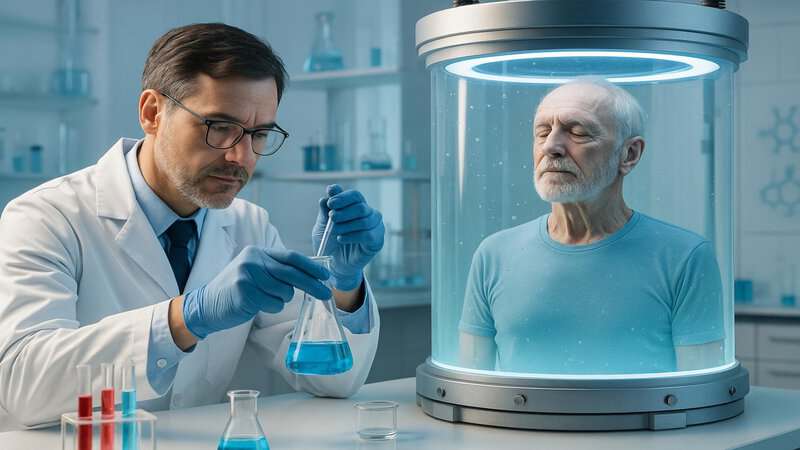

Vielleicht interessiert es Sie:
13 Extraordinary Giants Ready to Blow Your Mind! 🌍
10 Chonky Oddities That Will Leave You Speechless! 🤯
9 Unbelievable Absolute Units That Will Leave You Speechless! 🌟
10 Colossal Creatures That Will Leave You Speechless! 🐻
12 Shocking Absolute Units You’ll Have to See! 😲
12 Epic Absolute Units That Will Challenge Your Perceptions! 🔥
Uncover the 11 Ultimate Massive Oddities That Awe! 🌍
9 Unbelievable Oddities That Redefine ‚Massive‘! 🐉💎